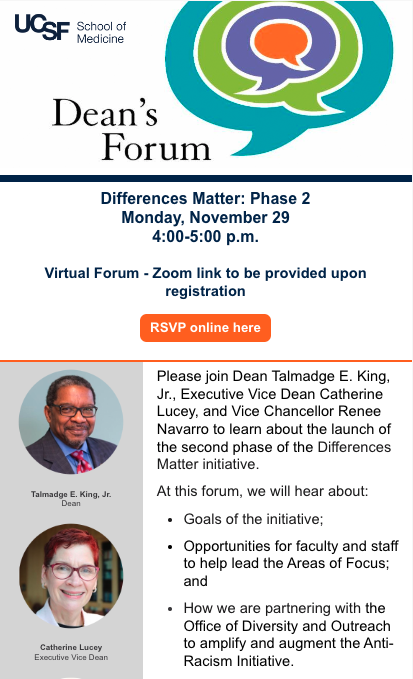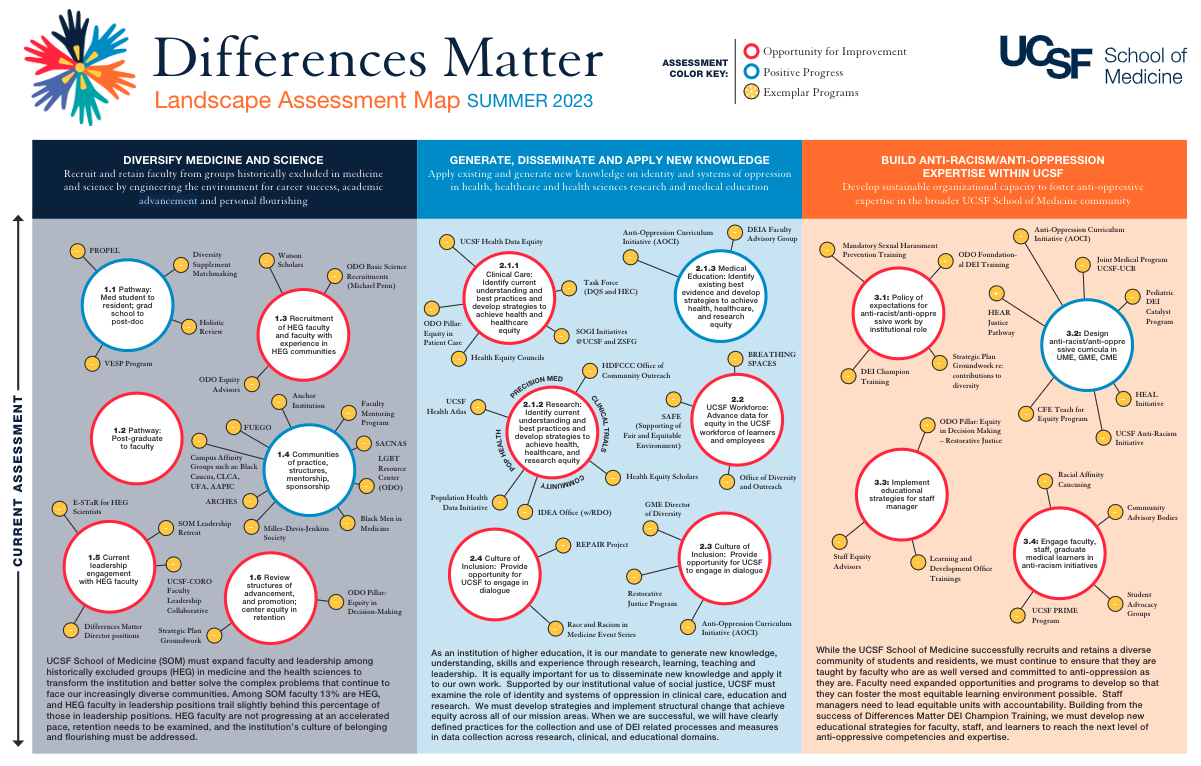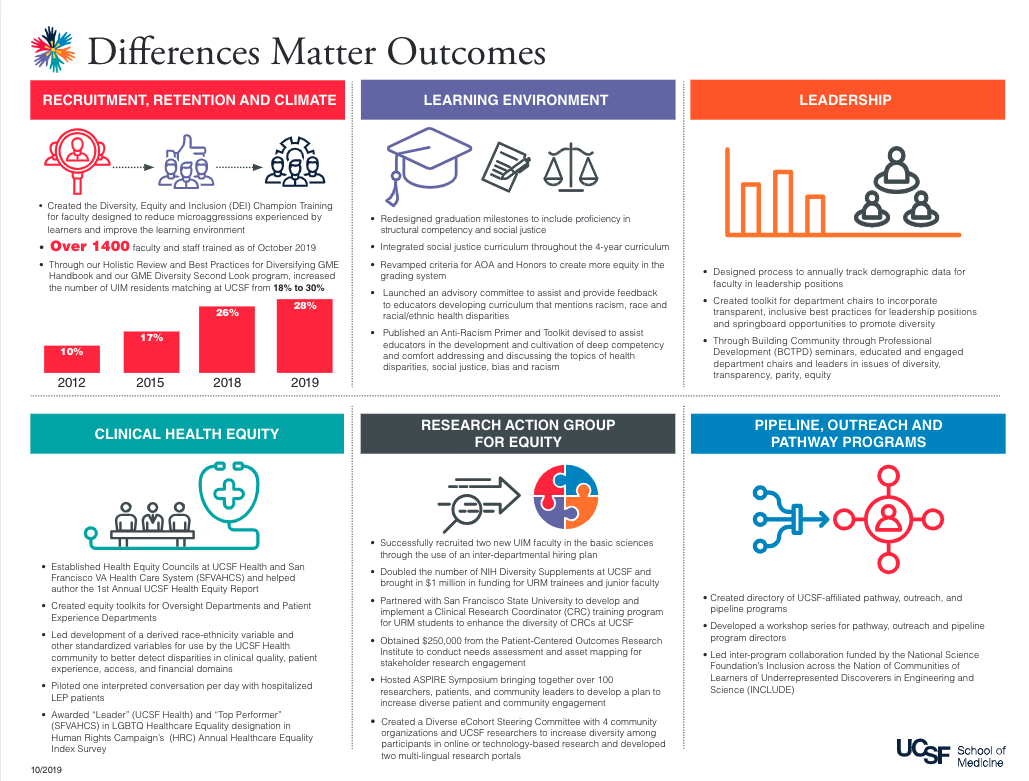2023: Blueprint and Assessment Stage
Before interventions can be designed, a critical step in institutional change is defining the problem. Focus Areas completed this process through three steps:
1. A3s: For each of their impact areas, groups did a deep dive into outlining the problem they each were charged to solve.
2. Landscape Assessment: To better understand the breadth and depth of existing work at UCSF and beyond, groups conducted landscape assessments or environmental scans to guide wise decision making about next steps.
3. Differences Matter Retreat: Joined by department diversity leaders and Watson Scholars, our co-directors presented how they are moving to design change and solicited input from the group.
The next phase of work will be to design and implement programs and redesign structures and systems to further our goal of achieving equity, belonging and anti-oppression across the School of Medicine.
View a larger version of the Landscape Assessment here.
2022: Differences Matter Phase Two Announced

In the second phase of the Differences Matter initiative, the School of Medicine will transform existing structures to sustain the successes of the first five years of the initiative and will implement new areas of focus designed to target high impact areas that have the potential to accelerate the achievement of equity, belonging, and anti-oppression across the medical profession.
Co-Directors for each of our three focus areas were named and volunteer working groups formed. The work of each focus area will begin with a landscape assessment.
Focus Areas include:
1. Diversify Medicine by expanding faculty and leadership from historically excluded groups to transform UCSF and the nation’s medical schools to better solve the complex problems that continue to face our increasingly diverse communities.
2. Innovate Collection and Use of Data for Equity by identifying gaps in and innovating on the collection and use of sociodemographic data and data on social determinants to dismantle systems of oppression in health, healthcare, research, medical education, and workplace culture at UCSF.
3. Build Anti-racism/Anti-oppression Expertise within UCSF by establishing competencies by role and devising educational strategies for individuals to develop these competencies, using both internal and curated external resources.
If you are interested in joining us on one of our committees, please indicate your interest here.
2015-2020: Differences Matter Phase One
In 2015, Differences Matter was launched with six focus areas, each led by faculty and staff Dean’s Diversity Leaders:
Leadership: Develop an informed, committed and diverse leadership who are dedicated to advancing diversity, equity and inclusion in all mission areas and at all UCSF sites.
Climate and Recruitment: Increase the diversity of our faculty, residents and professional staff and increase the personal competencies of all our professionals in teaching, leading and managing a diverse community.
Education: Cultivate the highest quality, most inclusive learning environment for our medical students and residents.
Clinical Care: Identify and address health care disparities in the clinical environments, UCSF and UCSF affiliates and ensure that health care professionals are skilled in working with diverse communities.
Research: Increase the diversity of our scientific workforce and our clinical trials participants and work to ensure that our discovery engine provides better insights into the health and health care needs of our increasingly diverse population.
Pipeline, Outreach and Pathways: Establish UCSF as a destination for those who seek to eliminate opportunity disparities in our communities.
Several impactful direct outcomes resulted from the initiative as well as several indirect outcomes such as: raising the visibility of faculty working in this field, providing advancement steps for some; leading the national dialogue on equity in assessment, resulting in changes to USMLE Step 1 grading; and laying the groundwork for addressing racial justice issues in 2020.
For a larger version of the Differences Matter Outcome document, see here.


